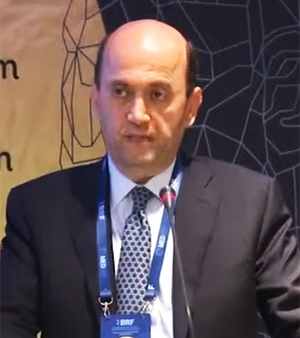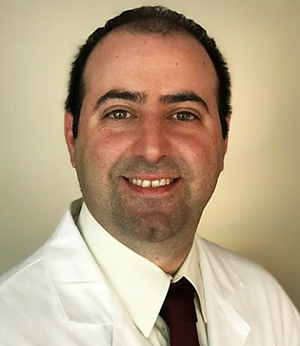Losing the ability to smell and taste can be disorienting and distressing, impacting daily life in unexpected ways.
Whether it’s due to a lingering cold, COVID-19, or other medical conditions, finding the right specialist is crucial for effective treatment and recovery.
Boston, a hub of medical excellence, boasts some of the finest doctors specializing in these sensory issues.
This article highlights the top five doctors in Boston renowned for their expertise in diagnosing and treating loss of smell and taste.
These specialists are not only highly qualified but also come with glowing patient reviews and a track record of successful outcomes. If you’re seeking the best care, look no further.
Top 5 Best Loss of Smell and Taste Doctors in Boston
The loss of smell and taste, known as anosmia and ageusia, can be caused by a variety of factors such as viral infections (including COVID-19), nasal polyps, sinus issues, or neurological disorders.
For treatment, it’s essential to consult doctors who specialize in ENT (Ear, Nose, and Throat), neurology, and sometimes allergology.
Here are five top doctors in Boston who are experts in treating anosmia and ageusia:
1. Dr. Benjamin S. Bleier, M.D.

- Location: Mass. Eye and Ear, 243 Charles St, Floor 1, Boston, MA
- Contact: (617) 573-6966
- Specialties:
- Anosmia
- Ageusia
- Advanced treatment methods in ENT
- Education: Harvard Medical School
- Patient Rating: 4.9/5 (based on 32 reviews)
- Care Approach: Focuses on innovative treatment strategies with excellent patient outcomes.
- Community Impact: Recognized for improving the quality of life for patients with smell and taste disorders.
2. Dr. Nicolas Y. BuSaba, M.D.

- Location: Mass. Eye and Ear, 243 Charles St, Floor 1, Boston, MA
- Contact: (617) 573-3558
- Specialties:
- ENT conditions
- Anosmia
- Ageusia
- Education: Harvard Medical School
- Patient Rating: 4.7/5 (based on 29 reviews)
- Care Approach: Offers thorough evaluations and personalized treatment plans.
- Community Impact: Well-regarded for successful outcomes in complex ENT cases.
3. Dr. George A. Scangas, M.D.

- Location: Mass. Eye and Ear, Zero Emerson Pl, Boston, MA
- Contact: (617) 227-4366
- Specialties:
- Olfactory disorders
- Taste disorders
- Patient Rating: 5.0/5 (based on 4 reviews)
- Care Approach: Known for meticulous care and tailored treatment strategies.
- Community Impact: Highly praised for effectively managing smell and taste issues.
4. Dr. Ralph B. Metson, M.D.

- Location: Mass. Eye and Ear, Zero Emerson Pl, Boston, MA
- Contact: (617) 227-4366
- Specialties:
- Smell and taste disorders
- Comprehensive ENT care
- Patient Rating: 5.0/5 (based on 3 reviews)
- Care Approach: Focuses on personalized treatment plans for optimal patient outcomes.
- Community Impact: Valued for his commitment to addressing patients’ unique needs.
5. Dr. Jeffrey Brown, M.D.

- Location: 100 Sylvan Rd Ste 750, Woburn, MA (near Boston)
- Contact: (781) 937-3001
- Specialties:
- Anosmia
- Ageusia
- Upper respiratory conditions
- Experience: Over 37 years in ENT
- Patient Rating: 4.7/5 (based on 14 reviews)
- Care Approach: Offers thorough and compassionate care in managing smell and taste disorders.
- Community Impact: Known for his extensive experience and dedication to patient wellness.
What Causes Loss of Smell and Taste?
Loss of smell (anosmia) and taste (ageusia) can occur due to a variety of reasons, often impacting a person’s quality of life.
These senses are closely linked, and disruptions can result from several underlying conditions:
Viral Infections
The most common cause of temporary anosmia and ageusia is viral infections, including the common cold, flu, and more recently, COVID-19.
These viruses can inflame the nasal passages, reducing airflow and impacting the olfactory nerves responsible for smell. As smell diminishes, taste is also affected since both senses work together.
Nasal and Sinus Issues
Chronic sinusitis, nasal polyps, allergies, and other nasal blockages can lead to a loss of smell and taste.
These conditions block airflow, preventing the olfactory system from detecting odors, which in turn affects taste perception.
Neurological Disorders
Certain neurological conditions like Alzheimer’s, Parkinson’s disease, and multiple sclerosis can affect the brain’s ability to process sensory information, leading to anosmia or ageusia. These conditions can damage the nerves that transmit smell and taste signals to the brain.
Head Trauma
Injuries to the head, particularly near the olfactory nerves or the brain regions involved in sensory processing, can cause a permanent or temporary loss of smell and taste. Trauma can sever the nerves or disrupt brain function related to sensory perception.
Medications and Toxins
Certain medications, such as antibiotics, antihistamines, and chemotherapy drugs, can interfere with taste and smell receptors.
Exposure to toxic chemicals like pesticides and solvents can also damage sensory receptors, leading to anosmia or ageusia.
Aging
As people age, their sense of smell and taste naturally declines. This is due to the gradual loss of olfactory and taste receptor cells, reduced mucus production, or slower nerve regeneration.
Smoking and Alcohol Use
Long-term smoking damages the nasal passages and olfactory nerves, leading to anosmia. Excessive alcohol consumption can impair the brain’s ability to process sensory information, affecting taste and smell.
Frequently Asked Questions
Which doctor should I see for loss of smell and taste?
You should consult an otolaryngologist (ENT), who specializes in treating these disorders.
Can the loss of smell and taste be treated?
Yes, treatment depends on the underlying cause and may involve medications, surgery, or therapy.
How Do You Treat Loss of Sense of Smell and Taste?
Treatment depends on the underlying cause. Options may include medications (like steroids for inflammation), nasal sprays, smell training (exposure to various scents), and addressing any related health issues (like allergies or infections).
Can an Ear Infection Cause Loss of Smell and Taste?
Yes, an ear infection can lead to loss of smell and taste. This can occur if the infection affects the Eustachian tube or is associated with sinus infections that impact olfactory function.
What Neurological Conditions Cause Loss of Taste and Smell?
Neurological conditions that can cause loss of taste and smell include Parkinson’s disease, Alzheimer’s disease, multiple sclerosis, and traumatic brain injury. These conditions can affect the brain’s ability to process olfactory and gustatory signals.
Conclusion
Losing the ability to smell and taste can profoundly impact daily life, making it crucial to seek specialized care.
The top doctors in Boston, with expertise in treating anosmia and ageusia, provide a range of innovative and personalized treatment options to address these sensory disorders.
From viral infections to neurological conditions, understanding the underlying causes is essential for effective management and recovery.
By consulting with specialists in ENT, patients can receive tailored evaluations and comprehensive care that focuses on restoring these vital senses.
The importance of timely intervention cannot be overstated, as early diagnosis and treatment can significantly improve outcomes and enhance quality of life.
With the right support and guidance from highly qualified professionals, individuals facing loss of smell and taste can regain their sensory abilities and enjoy a fuller, more vibrant life.
Laura Fletcher